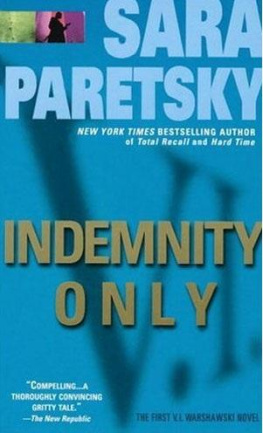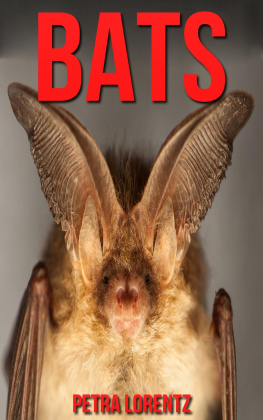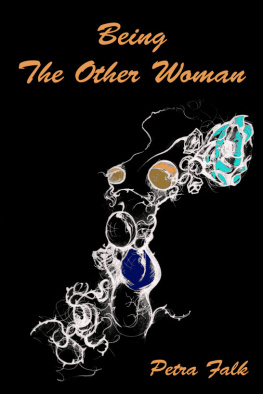
Book 13 in the V.I. Warshawski series, 2009
For Judy Finer and Kate Jones
The world, and my words in it,
are poorer for your leaving.
I first came to Chicago in the summer of 1966 to do community service for the Chicago Presbyterys Summer of Service. I was assigned to a white neighborhood on Chicagos Southwest Side, not far from where Martin Luther King had been living since January.
My job that summer was to work with kids six to ten years old. My coworkers and I tried to educate them and support them during a frightening time.
My summer in the city was the defining time of my life. My immediate boss, the Rev. Thomas Phillips, saw that my coworkers and I were immersed in every aspect of the city and neighborhood life, from local white citizens council meetings, the Catholic youth group, and other neighborhood groups, to broader city political and social events.
The White Sox, who were in our backyard, wouldnt return our phone calls, but the Cubs gave our kids free tickets every Thursday, so I became a Cubs fan-a heavy price to pay for a summer of service. We also watched Shaws St. Joan, performed under moonlight at the University of Chicago, which made the university-my current home-seem like a magical place.
Dr. King joined local civil rights leaders like Al Raby in a series of marches designed to protest the citys pernicious real-estate policies. The idea of open housing in Chicago spawned riots all over the city. Marquette Park, eight blocks west of where I was living and working, was the scene of an eight-hour riot, as the neighborhood attacked police for protecting Dr. King and his associates. Slogans with the vilest imaginable epithets were displayed in the park and around town.
Many of our neighbors, especially in the local churches, stepped up to the challenge of the times with courage, openness, and charity. Sadly, some of our neighbors were the bottle- and rock-throwing, hate-spewing rioters of Marquette Park.
The intensity of that summer, the pleasure I had in working with the children, the engagement with the city, despite its flaws, made Chicago a part of me, or me part of it, and it has been my home ever since. Hardball takes place in the present, but the heart of the story has its roots in that summer.
As always, many people helped make this book possible. My old coworker Barbara Perkins Wright shared her own perspective on that summer, and helped piece together my memories. Barbara and I heard King speak at Soldier Field, then marched with him to City Hall, where he taped his demands to the mayors door-what an exhilarating time. We thought change for good was not only possible, but near at hand. Lately, my long-dormant sense of hope has come back to life.
I have relied on Taylor Branchs At Canaans Edge for some details of Chicago in 1966. Jean MacLean Snyder helped with information about the Illinois prison system and the politics of Cook Countys criminal justice system. James Chapman, who teaches at the Stateville Correctional Facility, provided many details of day-to-day prison life there. Linda Sutherland, who corrected some of my U.S. Army mistakes in Bleeding Kansas, kindly advised me on the medals Mr. Contreras would have earned from his World War II service. Dave Case, a Chicago police officer and fellow crime writer, gave me helpful details about storage of departmental files. The sisters at the Eighth Day Justice Center in Chicago inspired me greatly. Sonia Settler and Jo Fasen made it possible for me to return to a more normal writing life. The senior C-Dog was helpful as always.
The novel is a work of fiction. I have taken liberties with Chicago police badges. I have tried not to take liberties with Chicago geography, but, of course, every now and then mistakes creep in, and I rely on alert readers to point them out. But most of what takes place between these covers is a work of the imagination, as free and unfettered as is in my power to make it.
ANACONDA FURY
JOHNNY MERTON WAS PLAYING WITH ME, AND WE BOTH knew it. It was a fun game for him. He was doing endless years for crimes ranging from murder and extortion to excessive litigation. He had a lot of time on his hands.
We were sitting in the room at Stateville reserved for lawyers and their clients. I couldnt believe Johnny was stringing me along, thinking Id get him out early. It had been too many years since Id practiced criminal law for me to be a good bet for any convict, let alone someone who needed Clarence Darrow and Johnnie Cochran working double shifts before he had a prayer.
I want the Innocence Project working for me, Warshawski, he announced that afternoon.
And you are innocent of exactly what? I pretended to make a note on my legal pad.
Whatever theyre charging me with. He grinned, inviting me to think he was clowning, but I didnt smile back. Whatever else he might be, Johnny Merton was no buffoon.
Johnny was past sixty. During my brief stint as his lawyer when Id been with the Public Defenders Office, hed been an angry man whose rage at being assigned yet another new-minted attorney made it almost impossible to stay in the bull pen with him. Hed earned his nickname, The Hammer, because he could bludgeon anyone with anything, including his emotions. The twenty-five intervening years-many behind bars-hadnt exactly mellowed him, but he had learned better ways of working the system.
Compared to you, my wants are so simple, I said. Lamont Gadsden.
You know, Warshawski, life in prison, it takes away so much from you, and one of the things Ive lost is my memory. Name does not ring a bell. He leaned back in his chair, arms crossed. The snakes coiling around his biceps, looping down so that the heads rested on his wrists, seemed to writhe against his dark skin.
Word is, you know where every Anaconda past and present is. Even to their final resting places if theyve left the planet.
People do exaggerate, dont they, Warshawski? Especially when theyre in front of a cop or a states attorney.
Im not looking for Lamont Gadsden for my health, Johnny, but his mama and his aunt want him found before they die. Even though he hung with you, his auntie continues to think of him as a good Christian boy.
Yeah, every time you mention Miss Claudia, I start to cry. When Im by myself and no one can see me, of course. You cant afford to get a reputation for softness in the joint.
I doubt your tender heart will ever be your downfall, I said. You remember Sister Frances?
I heard about her, Warshawski. Now, there truly was a fine Christian woman. And I hear you was with her when Jesus took her home.
You hear a lot. I put just the right amount of admiration into the sentence, and Johnny preened. But he didnt say anything.
You dont care what she said to me before she died? I prodded.
You can make up anything a dead person said. Its a good angle, but Im not biting.
What about the living, then? You care about what your kid has to say about you?
You been talking to my girl? This was news to him, and rage swept him off his feet, making the veins in his throat bulge. You been harassing my family, and I hear about it from you in here first? You stay away from my girl. Shes living a life any fatherd be proud of, and I wont have scum like you bring her down. You hear?
The guard came over from the corner and tapped his arm. Johnny, take it easy, man.
Take it easy? Take it easy? You take it easy when this bitch, this cunt, comes after your family I wouldnt run you as a whore, Warshawski, you stink so bad.
The guard was summoning help. Someone came in with manacles for Johnny.
Next page




